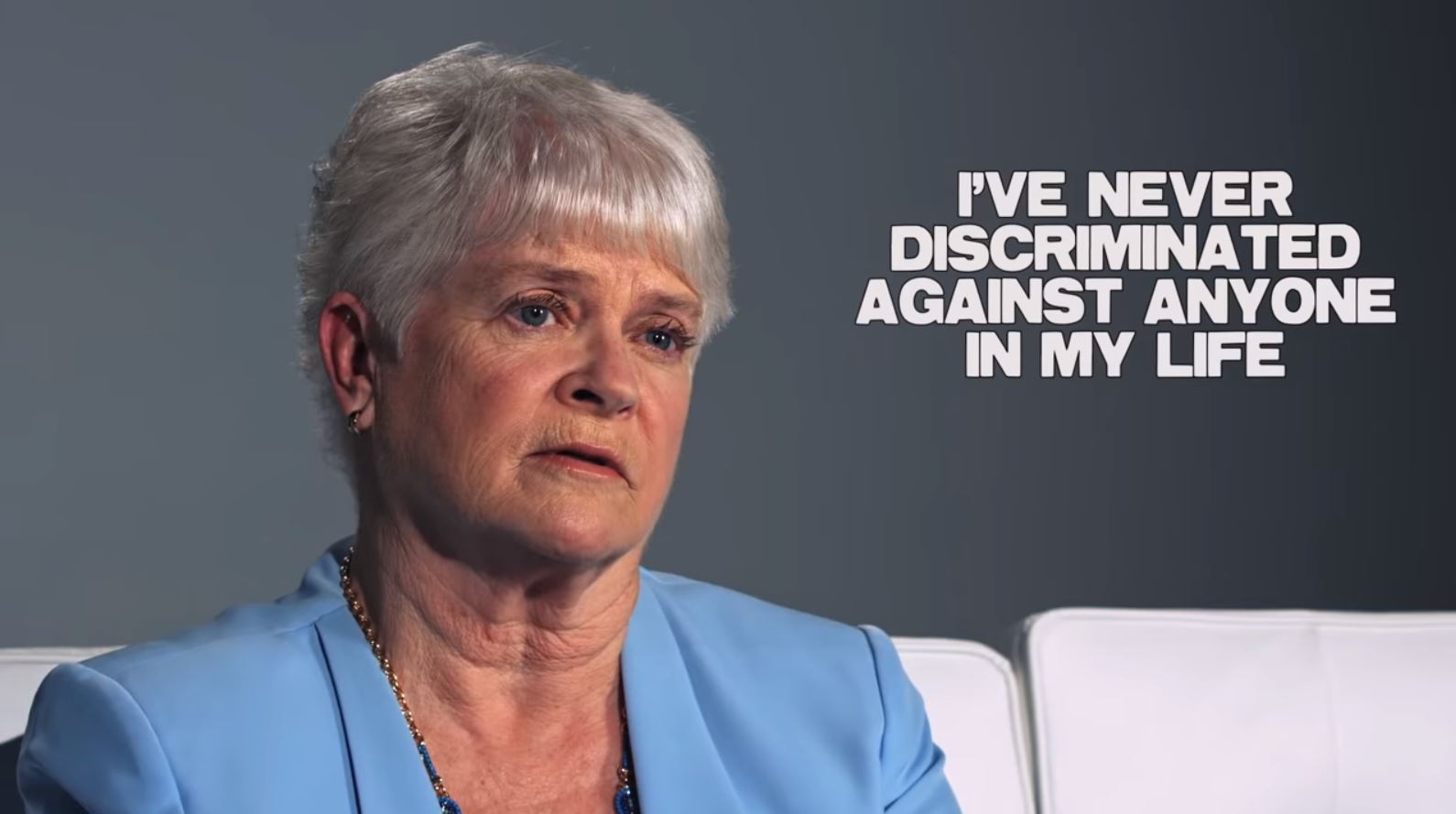The Alliance Defending Freedom (ADF), the anti-LGBTQ hate group that defended the Colorado baker Jack Phillips in the U.S. Supreme Court case Masterpiece Cakeshop, was just handed a big defeat for one of their other clients. And the decision cited Masterpiece Cakeshop throughout to actually make the point that the anti-LGBTQ discrimination the group is advocating for is impermissible.
The Arizona Court of Appeals for Division One ruled Thursday that Brush & Nib, a calligraphy studio in Phoenix, could not violate the city’s nondiscrimination protections because of the owners’ religious beliefs. The case was one of ADF’s several preemptive challenges challenging LGBTQ protections in states and cities across the country. The studio did not discriminate against any clients, but it wants to, and it believes Phoenix’s ordinance prohibiting discrimination on the basis of sexual orientation should either be overturned or should simply not apply because of their religious beliefs.
And though ADF has been claiming victory all week in Masterpiece Cakeshop, the Court actually referred repeatedly to that decision to explain why Brush & Nib should not be permitted to discriminate. “We recognize that a law allowing Appellants to refuse service to customers based on sexual orientation would constitute a ‘grave and continuing harm,'” the decision states, referencing Obergefell, the Supreme Court’s marriage equality decision. The judges then cite a rather long excerpt from Masterpiece Cakeshop that reasons that while some may have religious objections to same-sex couples marrying, “it is a general rule that such objections do not allow business owners and other actors in the economy and in society to deny protected persons equal access to goods and services under a neutral and generally applicable public accommodations law.”
Later, the decision once again cites Masterpiece Cakeshop when the judges note, “Allowing a vendor who provides goods and services for marriages and weddings to refuse similar services for gay persons would result in ‘a community-wide stigma inconsistent with the history and dynamics of civil rights laws that ensure equal access to goods, services, and public accommodations.'”
The crux of the Masterpiece Cakeshop decision was that the Colorado Civil Rights Commission failed to act as an impartial body, casting judgment on how Phillips was deploying his religious beliefs to justify discrimination. But the Arizona court found no evidence to suggest that Phoenix’s ordinance “has been anything other than neutral toward and respectful of their sincerely-expressed religious beliefs.”
According to the Arizona judges, the ordinance regulates conduct, not speech. And while the decision observes that “words” — as would be written by calligraphers on wedding invitations — would generally be considered speech, “the case before us is one of a blanket refusal of service to the LGBTQ community and not a First Amendment challenge to a specific message requested by a specific customer.”
The judges even provide an amusing hypothetical to show how the issue is selling the same product to the customers of different sexual orientations — not expressive conduct:
The items Appellants would produce for a same-sex or opposite-sex wedding would likely be indistinguishable to the public. Take for instance an invitation to the marriage of Pat and Pat (whether created for Patrick and Patrick, or Patrick and Patricia), or Alex and Alex (whether created for Alexander and Alexander, or Alexander and Alexa). This invitation would not differ in creative expression.
The Court rejected all of the ADF’s claims of free speech, free association, or freedom of religion on behalf of the calligraphers. “Although Appellants argue they created Brush & Nib pursuant to their religious beliefs, this alone does not bestow on Appellants the unfettered right of expressive association in their business,” the decision explains. “The primary purpose of Brush & Nib is not to convey a particular message but rather to engage in commercial sales activity.”
The calligraphers have two choices. They can either discontinue selling custom wedding-related merchandise, or they can serve all customers equally. “What Appellants cannot do,” the judges warn, “is use their religion as a shield to discriminate against potential customers.”
ADF appears to be reeling a bit from the decision. Promising to appeal to the Arizona Supreme Court, ADF Senior Counsel Jonathan Scruggs said in a statement that the decision somehow contradicts Masterpiece Cakeshop. “In Monday’s Masterpiece Cakeshop decision, the Supreme Court reaffirmed that ‘religious and philosophical objections to gay marriage are protected views and in some instances protected forms of expression,'” he whined, using language the Arizona judges had themselves cited in the opinion. “Phoenix’s position contradicts this principle and violates our clients’ artistic and religious freedom.”
For those hoping that Masterpiece Cakeshop served up a new license to discriminate for anti-LGBTQ business owners, the Brush & Nib ruling serves up some rather harsh whiplash. Indeed, it confirms what ACLU attorney James Esseks said this week about the Masterpiece Cakeshop decision — that the bakery may have won the battle, but it lost the war.


